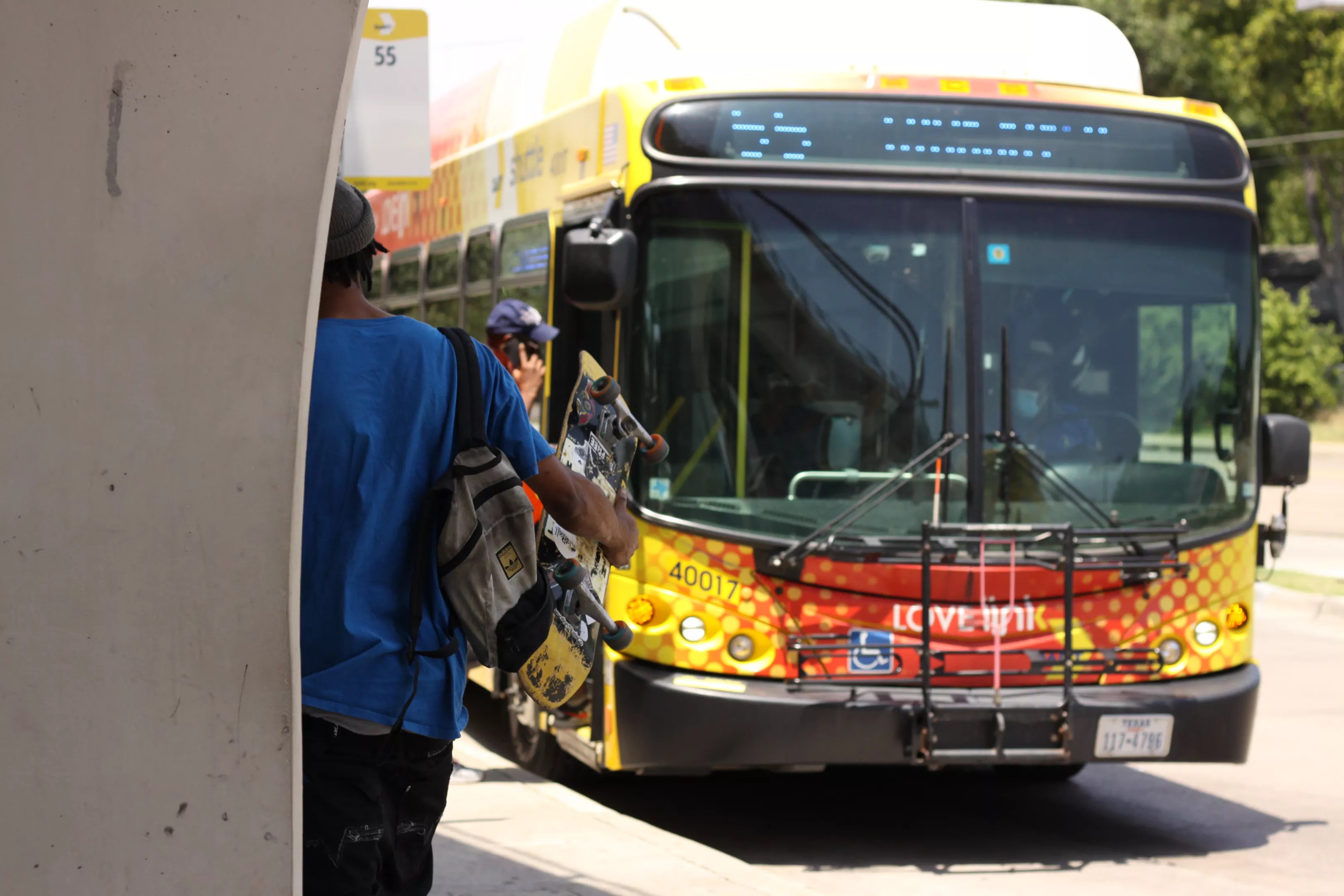
Jacob Vaughn

Audio By Carbonatix
A few weeks ago, a handful of Dallas Area Rapid Transit member cities announced their intention to add a measure to the May voting ballot, allowing their constituents to choose whether or not to end contracts and tax contributions to the transportation agency. Last to throw in their chips and join Farmers Branch, Highland Park and Plano was Irving, whose case for leaving the network may be the strongest following significant service cuts earlier this year.
The main complaint for the city leading the charge, Plano, is a lack of return on investment, which Irving might also have a case for moving forward.
A frequently cited financial analysis conducted by a third-party firm for DART’s 2023 fiscal year revealed that most member cities were contributing far more to the service than they were receiving in return. Plano contributed $109 million, with $4.6 million in services back in return. Highland Park contributed $6.3 million compared to $1.9 million in services. Farmers Branch contributed $24.3 million, resulting in a $20.8 million return on their investment, according to the report, which has become a thorn in the side of DART’s administrative team, who point out that, like all studies, it may have some skew.
“There were a number of costs that were not included in the methodology,” said DART CEO Nadine Lee after the cities announced special sessions to discuss turning the decision to voters. “There was a distribution of funds back in 2022 and 2023, the public transportation improvement funds that were not accounted for in that methodology. There was a transportation improvement program that wasn’t accounted for in the methodology either. So it’s challenging to say that the EY study was entirely accurate.”
Still, the cities refer back to the study at every opportunity. But, interestingly, Irving is one of only six of the 13 member cities that receive more in services than they contribute in taxes, contributing $102 million in taxes and getting $123.5 million in services. However, that equilibrium will become unbalanced in the years to come as Irving was disproportionately affected by the largest service cuts to the transit system approved earlier in the fall.
In a conciliatory attempt following a contentious legislative session, DART approved several service cuts, freeing up room in the budget to add new services to angered member cities and furlough underused services. In those cuts were seven bus routes, two of which covered Irving, resulting in a 29% reduction in bus service systemwide. Route frequency was also reduced across the entire 700 square-mile service region.
One of the crucial routes, 225 on Nursery Road, was the direct connection route to the University of Dallas Orange Line light rail station, significantly reducing the city’s accessibility to interconnected travel.
“With the elimination of two bus routes, DART will only be providing the City of Irving with bus connectivity to three of eight rail stations (38% of Irving rail stations), thereby significantly reducing or eliminating the ability for Irving residents to gain access to healthcare, education, job opportunities and other essential services,” read the city’s website critiquing the cuts.
Irving’s bid to leave DART does not come as a surprise. The city mayor, Rick Stopfer, who has served on the DART board, announced his support for the recent bill from Plano Rep. Matt Shaheen, which would have completely dismantled DART’s funding system and halted many ongoing projects. The mayor also joined five other North Texas city leaders in requesting Gov. Greg Abbott add transportation funding to the agenda for the special sessions that took place over the summer. From Irving’s view, there is reason for that. According to the city’s website, between 2013 and 2023, its tax contributions increased by 106%, while ridership decreased by almost half.
In early September, Irving City Manager Chris Hillman highlighted the issues with the newly approved bus route cuts in an email addressed to Lee.
“Cutting two bus routes will only exacerbate a currently frustrating situation for our residents who feel DART is not providing the transportation solutions they are looking for and need,” Hillman wrote. “I disagree that there are ‘adequate’ other transportation solutions for Irving residents, and if bus routes need to be cut it should be other routes that have a lower ridership/higher subsidy.”
In late October, the Irving City Council passed a resolution requesting that the DART Board of Directors reconsider cutting the two bus routes, citing the significant impact the cuts would have on the quality of life of the 1,000 Irving residents who rely on the routes. DART has yet to formally respond to the request.
Last week, in an unexpected twist, the city of Plano submitted a new proposal to DART, extending its contract by six years in exchange for the termination of all standard bus routes within the city’s limits, while retaining express buses and all rail line services, according to reporting from KERA.
“In return, Plano agrees to cease any legislative efforts to alter DART’s governance or financing and to stop pursuing withdrawal from DART during the agreement period,” read the agreement obtained by KERA. “The City will rescind any prior withdrawal election actions within 72 hours of finalizing the agreement and will remain a participating DART member.”
The truce could mark the beginning of a ceasefire between DART and its member cities, but for now, Farmers Branch, Highland Park and Irving appear ready and willing to terminate their contracts as soon as voters give them the green light.